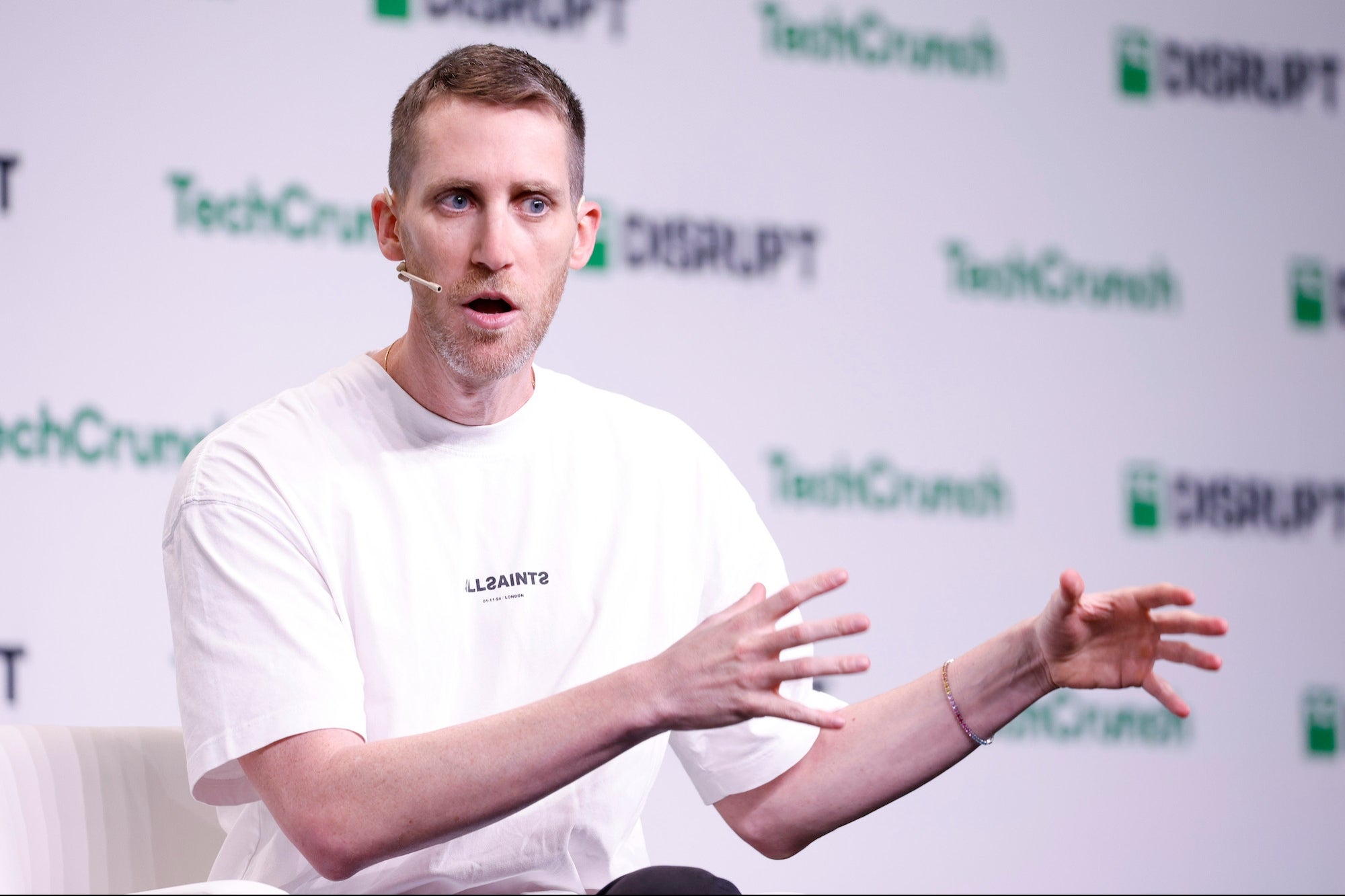6 Lessons Indie Rock Taught Me About Business Style, good listening and commitment are skills valuable for rock'n'roll and startups alike.
By Winston Binch Edited by Dan Bova
Opinions expressed by Entrepreneur contributors are their own.

My career in advertising and marketing was largely accidental. It wasn't something I wanted to do when I was growing up, or even when I was in school. Instead, after college, my ambition was to play music. So, for five years, that's what I did as a guitarist with Brooklyn-based indie rock band, Stereobate.
Related: Big Business Lessons From Three Rock 'n' Roll Legends
In some respects, I failed. I was never able to quit my day job and never got signed to a major record label. But I wouldn't trade the experience I had for anything. It taught me more about leadership in creative business than any school ever could. I learned, for instance, that creativity is transferable.
The processes, the triumphs, the failures -- so many of the things I experienced as a musician, I now apply to my work in marketing. Here are those valuable lessons I took away from being in a rock band.
1. Creative diversity wins.
While we never made it big, we made it further than most. We created an original sound, made some records, got press and performed at iconic venues with great bands like Interpol, Girls Against Boys, Luna and Trans Am. We made a mark because no one else sounded like we did.
We also went to college together but had different interests, friends, and tastes in music. What we did share was a desire to change music. And when we came together, we brought new ideas to one other and to our songs. Our differences helped make our sound unique.
The same applies for all creative pursuits; divergent thinking leads to new and unseen territories. Hire misfits and weirdos. Mix up your creative gene pool.
2. Listen, like it's your job.
Jazz musicians and improv artists know better than anyone that you're only as good as the melody or idea you build on. I've struggled with focus and listening most of my life, but Stereobate helped me. I grew up playing the easy rhythms, while my bandmates mastered more complex music. In order to contribute, I had to listen intently.
Finding white space and being additive was challenging. It required deep focus for me to simplify my thinking and be more empathetic. Regardless of the creative field, if you want to make a meaningful impact in any creative session, you need to be a great listener and be open to ideas no matter where they come from. The big ideas are usually hiding in plain sight.
If you want to add value to a creative discussion, be the best listener in the room. Be selfless. Play jazz. You can always get better. I'm still a work-in-progress in that department.
Related: No Brown M&M's: What Van Halen's Insane Contract Clause Teaches Entrepreneurs
3. Style matters.
I was pretty close to a fashion disaster during my time in Stereobate, but I didn't care. Punk rock meant honesty to me, and I thought people should judge me for my music, not my style. I was dead wrong. You're a brand, and what you project visually matters. More people might have given our music a chance had we been as hard on our style as we were our music.
Business is no different. You need to look the part, hone your individual style and consider every detail. When our agency hired our head of design, Nathan Iverson, one of the most stylish guys in advertising, he told me that the only way he'd work with us is if I blew up my wardrobe. I agreed.
Blowing up my wardrobe and finding some degree of style has made a difference. People took notice. So, do as I did: Pay attention to trends and communicate visually. If you need to, ask a stylish friend for tips.
4. Adopt an 'explorer' mindset.
There are no bad ideas. Ideas that don't work just teach you something more about the problem you're trying to solve. Whether you're writing a song or solving a big business problem, experimentation and failure are necessary parts of the creative process. Being in a band gave me courage to take big creative risks, even if it meant failing miserably in front of an audience.
Sometimes, we would finish a song, scrap everything but a lyric or a riff, start again and build something new around it. That kind of creative process is messy as hell. But if you want to succeed creatively, you have to be messy. You have to be brave, foolish and unafraid to make mistakes.
The biggest risk to your business is staying in your comfort zone. One of the greatest innovators of our time, Jeff Bezos, is a big believer in going down "blind alleys." I recommend the same thing. Explore. Enlightenment awaits.
5. Be prolific -- but not precious.
I met my wife through music. One of her observations about our band was that our outpt was slow; she wasn't wrong. Over the course of six years, we put out only one full-length record and two EPs.
Back then, it wasn't as easy to record your own album as it is today. Buying studio time was expensive, but we could have put more music out. We were overly obsessed with quality, in making our music as "tight" as possible and doing things our way. In advertising, we still tend to overly-craft things and struggle to keep pace with culture. But that's not always wise.
Get your ideas out there, even if they're raw. Stop obsessing about the polish. Make a lot of bets. Know that volume matters. We live in an era where authenticity and honesty are celebrated. And looking back, I wish had put more out into the world.
6. Commit to the idea.
There's no replacement for talent, but commitment matters. We didn't make it easy on ourselves by living in one of the most expensive cities in the country, and, If I'm honest, I'm not sure we cared enough; we didn't sacrifice everything. Many of those who have since "made it" did sacrifice. The issue of commitment is a question that's stuck with me over the years.
Great creative work never happens without a struggle. Bold and new ideas make people nervous. If you want to make them happen, you have to will them there.
You have to work harder than anyone else, do whatever it takes and take personal and public responsibility for the outcome. There are no shortcuts to creative success. You have to leave it all on the field.
Related: Sell Like a (Literal) Rock Star With These 5 Takeaways
Hindsight is 20/20, but if I had to do it all over again, I'd still join that band and spend just as much time trying -- and failing -- to make it big. There isn't much I would have done differently, besides maybe investing in a cooler get-up. It was a foundational career experience and I look back fondly on it, constantly. I still learn from it, too.










